| On October 4, 2018 Kelly Roberts wrote a piece for The Conversation that was, in part, a way to react to the Kavanaugh hearings through a robust YA novel, Speak, by Laurie Halse Anderson. Most people in the field of YA scholarship know the book and its constant impact in classrooms and among individual readers for nearly twenty years. I have personally witnessed Ms. Anderson, not only sign books for the obligatory 30 to 60 minutes but she stays and listens to the intimate stories and concerns that readers of the book want to share with her for as long as it takes. She looks them in the eye, she hugs them if they need it, and she believes them. I have learned a great deal from watching Laurie on several occasions. Most recently, as she presented at the 2018 Summit on the Research and Teaching of Young Adult Literature last June at the University of Nevada, Las Vegas, I observed her take a long lunch with one of my graduate students who need the personal touch that Laurie frequently provides. I believe, as professor Joan Kaywell claims, that books can save lives. Maybe not every book with every kid, but those of us who work with adolescents and promote Young Adult literature have watched too many kids completely embrace a book. |
What I want to emphasize is that Laurie is not sounding this clarion call alone. There are a large number of YA authors who are also addressing the concerns raised by the #metoo movement and by the troubling reactions to the Kavanaugh hearings.
Let’s be clear, the novelists I will highlight here were writing about rape culture and the issues surrounding it before the Kavanaugh hearings. The statistics about the number of female and male adolescents who are raped is well established and you can read more about this on the RAINN webpage and other similar sources. What the hearings taught us is that males in power say they want to believe, but never quite find it plausible if it means that one of their colleagues might be culpable.
I love the novel Speak, but I want to acknowledge that Anderson is not alone in writing fiction that depicts this ongoing problem. The novels I highlight below were all written before the hearings, but in the recent past. Nevertheless, they could be read as if they are responding to the emotional issues of recent events. Indeed, they are not. Instead, these authors are writing about the issue of rape and consent based on their own experience or the experiences of people close to them. Are we listening? Do we believe?
Wrecked by Maria Padian
Tradition by Brendan Kiely
Kiely followed that novel with The Last True Love Story, a novel about the relationship between a boy and his aging grandfather who is suffering from dementia. It is built around the metaphor of an Odyssey, as, together, the two characters attempt a journey home.
His most recent novel, Tradition, takes on rape culture on a college campus. It is another tour de force. In this book, both Jamie and Jules must confront the negative traditions and cultures that pervade the campus. Kiely does not shy away from difficult subjects. Instead he works to carefully craft a narrative that has believable characters in complex situations. Again, this is a novel that should be on your “to be read” list.
Blood Water Paint by Joy McCullough
…this is a beautiful historical verse novel. The pages ran before my eyes as I was swept away by the narrative. McCullough does a wonderful job of creating a strong character who draws her inspiration from two biblical characters, who have both been the subjects of Renaissance paintings, Judith and Susanna. You can find the paints of this remarkable painter by following this link.
This novel demonstrates that the story of male abuse is not new. Artemisia’s trial against her attacker took place in 1611. It is lamentable that her success has not carried on through the centuries. Is it any wonder that women stay silent? This novel made the longlist for the National Book Award for Young People’s Literature. Frankly, I was pulling for it to make the short list, but alas it didn’t happen. Pick this one for your book group. The conversations will be rewarding.
The Music of What Happens by Bill Konigsberg
One thing is certain. Adolescents need to know that we care, that we will listen, and that we will believe them. Just maybe, the vicarious experiences provided by reading one of these novels will help them feel less alone. They might find the courage to resolve a problem or gain the tools to avoid a problematic encounter in the future.
Until next week.
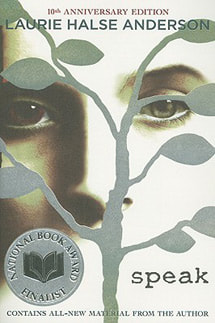
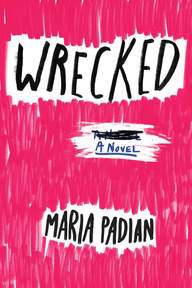
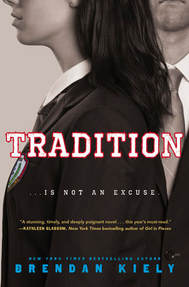
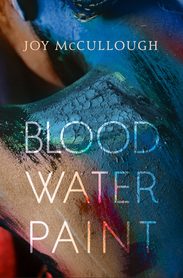
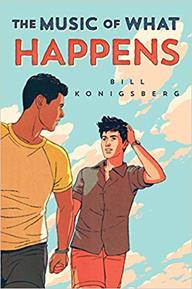

 RSS Feed
RSS Feed